◄ 1960 ►
Jan | Feb | Mar | Apr | May | Jun | Jul | Aug | Sep | Oct | Nov | Dec
| January | ► | ▲ | ||||
|---|---|---|---|---|---|---|
| 1 | 2 | |||||
| 3 | 4 | 5 | 6 | 7 | 8 | 9 |
| 10 | 11 | 12 | 13 | 14 | 15 | 16 |
| 17 | 18 | 19 | 20 | 21 | 22 | 23 |
| 24 | 25 | 26 | 27 | 28 | 29 | 30 |
| 31 | ||||||
![]() January: FBI Director J. Edgar Hoover bemoans the “unprincipled force which will spare no home or community in its quest for illicit profits.” Writing in the January issue of the FBI Law Enforcement Bulletin, Hoover says: “The time for half-hearted, oblique action against depravity is past. Although this despicable trade reaps $500 million a year, this diabolical business is costing the Nation much more than money. It is robbing our country and particularly our younger generation of decency — it is a seedbed for delinquency among juveniles and depravity among all ages.” Hoover cites a statistic that a reported rape occurred every thirty-six minutes in the U.S. in 1958, and says, “This truly shocking and shameful state of affairs is made even more deplorable by the knowledge that sex crimes and obscene and vulgar literature often go hand in hand.”
January: FBI Director J. Edgar Hoover bemoans the “unprincipled force which will spare no home or community in its quest for illicit profits.” Writing in the January issue of the FBI Law Enforcement Bulletin, Hoover says: “The time for half-hearted, oblique action against depravity is past. Although this despicable trade reaps $500 million a year, this diabolical business is costing the Nation much more than money. It is robbing our country and particularly our younger generation of decency — it is a seedbed for delinquency among juveniles and depravity among all ages.” Hoover cites a statistic that a reported rape occurred every thirty-six minutes in the U.S. in 1958, and says, “This truly shocking and shameful state of affairs is made even more deplorable by the knowledge that sex crimes and obscene and vulgar literature often go hand in hand.”
![]() Jan 1: At the stroke of midnight, the Republic of Cameroun becomes independent from France.
Jan 1: At the stroke of midnight, the Republic of Cameroun becomes independent from France.
![]() Jan 4: American singer, songwriter and R.E.M. frontman Michael Stipe is born.
Jan 4: American singer, songwriter and R.E.M. frontman Michael Stipe is born.
![]()
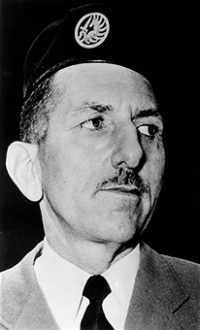 Jan 18: Maj. Gen. Jacques Massu, commander of the French Army in Algeria, criticizes President Charles de Gaulle in an interview published in the German newspaper Süddeutsche Zeitung. Massu had led a French coup in Algeria in 1958 that helped to bring down the Fourth Republic and bring de Gaulle to power as head of the Fifth Republic. With de Gaulle’s recent acknowledgement that the solution to Algeria’s ongoing unrest may lie in a degree of “self-determination” for the Arab population, Massu says, “Perhaps the Army made a mistake” in bringing de Gaulle to power.
Jan 18: Maj. Gen. Jacques Massu, commander of the French Army in Algeria, criticizes President Charles de Gaulle in an interview published in the German newspaper Süddeutsche Zeitung. Massu had led a French coup in Algeria in 1958 that helped to bring down the Fourth Republic and bring de Gaulle to power as head of the Fifth Republic. With de Gaulle’s recent acknowledgement that the solution to Algeria’s ongoing unrest may lie in a degree of “self-determination” for the Arab population, Massu says, “Perhaps the Army made a mistake” in bringing de Gaulle to power.
![]() Jan 22: France’s President Charles de Gaulle fires Maj. Gen. Massu from his post as commander of French Army in Algeria over Massu’s critical interview. French Algerians are outraged by the firing,
Jan 22: France’s President Charles de Gaulle fires Maj. Gen. Massu from his post as commander of French Army in Algeria over Massu’s critical interview. French Algerians are outraged by the firing,
![]()
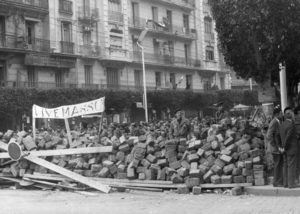 Jan 24: French residents in Algiers, along with elements of the Home Guard, launch an insurrection known in France as La semaine des barricades (“the week of barricades”), in which they seal off parts of Algiers. French Army leaders tell Prime Minister Michel Debre that they will not obey orders to attack the insurgents. In clashes with local police, 24 people are killed and 136 are injured.
Jan 24: French residents in Algiers, along with elements of the Home Guard, launch an insurrection known in France as La semaine des barricades (“the week of barricades”), in which they seal off parts of Algiers. French Army leaders tell Prime Minister Michel Debre that they will not obey orders to attack the insurgents. In clashes with local police, 24 people are killed and 136 are injured.
![]()
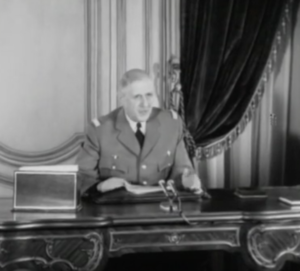 Jan 29: France’s Charles de Gaulle appears on television wearing his Army uniform “to stress that I am speaking as General de Gaulle as well as chief of state.” He says that he will not recant his position that the future of Algeria should be left to Algerians, and he won’t give in to European settlers “who dream of being usurpers.” The French Army, which had been reluctant to enter combat against French citizens, is persuaded to order home guardsmen inside the barricades to report to their barracks. When they refuse, the Army moves to end the rebellion.
Jan 29: France’s Charles de Gaulle appears on television wearing his Army uniform “to stress that I am speaking as General de Gaulle as well as chief of state.” He says that he will not recant his position that the future of Algeria should be left to Algerians, and he won’t give in to European settlers “who dream of being usurpers.” The French Army, which had been reluctant to enter combat against French citizens, is persuaded to order home guardsmen inside the barricades to report to their barracks. When they refuse, the Army moves to end the rebellion.
![]() Jan 29: Olympic gold medalist diver Greg Louganis is born.
Jan 29: Olympic gold medalist diver Greg Louganis is born.
| ◄ | February | ► | ▲ | |||
|---|---|---|---|---|---|---|
| 1 | 2 | 3 | 4 | 5 | 6 | |
| 7 | 8 | 9 | 10 | 11 | 12 | 13 |
| 14 | 15 | 16 | 17 | 18 | 19 | 20 |
| 21 | 22 | 23 | 24 | 25 | 26 | 27 |
| 28 | 29 | |||||
![]()
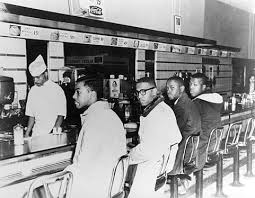 Feb 1: Four black students from North Carolina Agricultural and Technical State University begin a sit-in at a segregated Woolworths lunch counter in Greensboro. Joseph McNeil, David Richmond, Franklin McCain and Ezell Blair, Jr. are refused service, but they are allowed to stay at the counter. The protest triggers a wave of similar sit-ins throughout the South.
Feb 1: Four black students from North Carolina Agricultural and Technical State University begin a sit-in at a segregated Woolworths lunch counter in Greensboro. Joseph McNeil, David Richmond, Franklin McCain and Ezell Blair, Jr. are refused service, but they are allowed to stay at the counter. The protest triggers a wave of similar sit-ins throughout the South.
![]() Feb 3: The French National Assembly authorizes President Charles de Gaulle to rule by decree to remove French Algerian leaders from power. The next day, de Gaulle will fire the Deputy Prime Minister for Algeria, Jacques Soustelle.
Feb 3: The French National Assembly authorizes President Charles de Gaulle to rule by decree to remove French Algerian leaders from power. The next day, de Gaulle will fire the Deputy Prime Minister for Algeria, Jacques Soustelle.
![]()
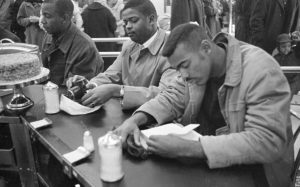 Feb 8: Inspired by the Greensboro sit-in, students from North Carolina College in Durham begin sit-ins at three lunch counters in Durham. Several white Duke University students join them. Three years earlier, African-American protesters had conducted a sit-in at Royal Ice Cream by sitting in a section reserved for whites. Other sit-ins take place in Fayetteville and Winston-Salem, North Carolina.
Feb 8: Inspired by the Greensboro sit-in, students from North Carolina College in Durham begin sit-ins at three lunch counters in Durham. Several white Duke University students join them. Three years earlier, African-American protesters had conducted a sit-in at Royal Ice Cream by sitting in a section reserved for whites. Other sit-ins take place in Fayetteville and Winston-Salem, North Carolina.
![]() Feb 9: The sit-in movement spreads to five more North Carolina cities: Charlotte, Concord, Elizabeth City, Henderson and High Point.
Feb 9: The sit-in movement spreads to five more North Carolina cities: Charlotte, Concord, Elizabeth City, Henderson and High Point.
![]() Feb 9: British singer and former frontman for Frankie Goes to Hollywood Holly Johnson is born.
Feb 9: British singer and former frontman for Frankie Goes to Hollywood Holly Johnson is born.
![]() Feb 10: The sit-in movement expands beyond the North Carolina state line when students from Hampton Institute begin sit-ins in Hampton, Virginia. Over the next several days, students will stage more sit-ins in the neighboring cities of Newport News, Norfolk and Portsmouth.
Feb 10: The sit-in movement expands beyond the North Carolina state line when students from Hampton Institute begin sit-ins in Hampton, Virginia. Over the next several days, students will stage more sit-ins in the neighboring cities of Newport News, Norfolk and Portsmouth.
![]() Feb 10: Students from Saint Augustine’s College and Shaw University begin sit-ins and pickets of several downtown Raleigh, North Carolina, lunch counters.
Feb 10: Students from Saint Augustine’s College and Shaw University begin sit-ins and pickets of several downtown Raleigh, North Carolina, lunch counters.
![]()
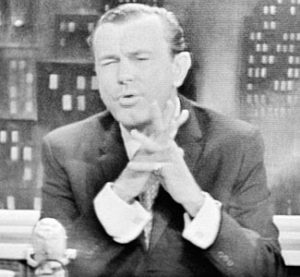 Feb 11: Jack Paar temporarily quits The Tonight Show because his monologue had been edited the night before to remove a joke about a British lady and a “W.C.” (the British term for a bathroom). Parr walks out to the audience at the beginning of the show, says “There’s got to be a better way to make a living,” and then walks off the stage, leaving his sidekick, Hugh Downs, to complete the remaining 85-minutes of broadcast time. After network executives apologize personally, Parr will resume hosting the program a month later. His first show back will start with the words “As I was saying before I was interrupted… When I walked off I said that there must be a better way to making a living than this. Well, I’ve looked, and there isn’t.”
Feb 11: Jack Paar temporarily quits The Tonight Show because his monologue had been edited the night before to remove a joke about a British lady and a “W.C.” (the British term for a bathroom). Parr walks out to the audience at the beginning of the show, says “There’s got to be a better way to make a living,” and then walks off the stage, leaving his sidekick, Hugh Downs, to complete the remaining 85-minutes of broadcast time. After network executives apologize personally, Parr will resume hosting the program a month later. His first show back will start with the words “As I was saying before I was interrupted… When I walked off I said that there must be a better way to making a living than this. Well, I’ve looked, and there isn’t.”
![]() Feb 12: Sit-ins begin in Rock Hill, South Carolina, the first in that state. Students from Friendship Junior College sit down at lunch counters at Woolworth’s and McCrory’s. Both stores will close their counters indefinitely. When they re-open again on February 23, the sit-ins will resume, and continue through the year.
Feb 12: Sit-ins begin in Rock Hill, South Carolina, the first in that state. Students from Friendship Junior College sit down at lunch counters at Woolworth’s and McCrory’s. Both stores will close their counters indefinitely. When they re-open again on February 23, the sit-ins will resume, and continue through the year.
![]() Feb 12: Inspired by the sit-ins taking place in and around North Carolina, the Congress of Racial Equality (CORE) formulates a plan to participate in sit-ins across the South.
Feb 12: Inspired by the sit-ins taking place in and around North Carolina, the Congress of Racial Equality (CORE) formulates a plan to participate in sit-ins across the South.
![]()
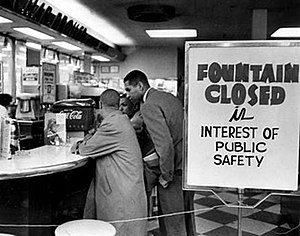 Feb 13: Students from Fisk University begin sit-ins at lunch counters and restaurants in downtown Nashville. Over the next three months, more than 150 students will be arrested and the home of the students’ lawyer firebombed. Nashville’s lunch counters will be desegregated three months later.
Feb 13: Students from Fisk University begin sit-ins at lunch counters and restaurants in downtown Nashville. Over the next three months, more than 150 students will be arrested and the home of the students’ lawyer firebombed. Nashville’s lunch counters will be desegregated three months later.
![]() Feb 13: Students from Florida A&M University launch a sit-in at a Tallahassee Woolworth lunch counter. They remain at the counter for 2½ hours without being served or arrested. They will return one week later. White students from Florida State University will join the weekly protests in March.
Feb 13: Students from Florida A&M University launch a sit-in at a Tallahassee Woolworth lunch counter. They remain at the counter for 2½ hours without being served or arrested. They will return one week later. White students from Florida State University will join the weekly protests in March.
![]() Feb 13: France tests its first atomic bomb in the Sahara Desert of Algeria.
Feb 13: France tests its first atomic bomb in the Sahara Desert of Algeria.
![]() Feb 20: Over the past week, lunch counter sit-ins have spread to Chapel Hill, NC; Chattanooga, TN; Charleston, SC; Richmond, VA; Salisbury, NC; Shelby, SC; and Sumter, SC.
Feb 20: Over the past week, lunch counter sit-ins have spread to Chapel Hill, NC; Chattanooga, TN; Charleston, SC; Richmond, VA; Salisbury, NC; Shelby, SC; and Sumter, SC.
![]() Feb 27: Over the past week, lunch counter sit-ins have begun in Baltimore, MD; Frankfort, KY; Lexington, KY; Montgomery, AL; Orangeburg, SC; Petersburg, VA; Tampa, FL; and Tuskegee, AL.
Feb 27: Over the past week, lunch counter sit-ins have begun in Baltimore, MD; Frankfort, KY; Lexington, KY; Montgomery, AL; Orangeburg, SC; Petersburg, VA; Tampa, FL; and Tuskegee, AL.
![]() Feb 28: The single “The Theme from ‘A Summer Place'” by Percy Faith and his Orchestra begins its nine week run at the top of the charts.
Feb 28: The single “The Theme from ‘A Summer Place'” by Percy Faith and his Orchestra begins its nine week run at the top of the charts.
| ◄ | March | ► | ▲ | |||
|---|---|---|---|---|---|---|
| 1 | 2 | 3 | 4 | 5 | ||
| 6 | 7 | 8 | 9 | 10 | 11 | 12 |
| 13 | 14 | 15 | 16 | 17 | 18 | 19 |
| 20 | 21 | 22 | 23 | 24 | 25 | 26 |
| 27 | 28 | 29 | 30 | 31 | ||
![]() Mar 2: Lucille Ball files for divorce from Desi Arnaz.
Mar 2: Lucille Ball files for divorce from Desi Arnaz.
![]() Mar 5: Sit-ins have now spread to Columbia, SC; Daytona, FL; Houston, TX; Miami, FL; and St. Petersburg, FL.
Mar 5: Sit-ins have now spread to Columbia, SC; Daytona, FL; Houston, TX; Miami, FL; and St. Petersburg, FL.
![]() Mar 5: Elvis Presley receives his honorary discharge from the U.S. Army.
Mar 5: Elvis Presley receives his honorary discharge from the U.S. Army.
![]() Mar 12: Over the past week, lunch counter sit-ins have spread to Austin, TX; Galveston, TX, Jacksonville, FL; Knoxville, TN, Little Rock, AR, and New Orleans, LA. Another sit-in will take place in San Antonio, TX the next day.
Mar 12: Over the past week, lunch counter sit-ins have spread to Austin, TX; Galveston, TX, Jacksonville, FL; Knoxville, TN, Little Rock, AR, and New Orleans, LA. Another sit-in will take place in San Antonio, TX the next day.
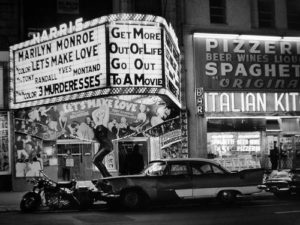 Mar 14: The New York Times investigates homosexuals and decay on West 42nd Street. Forty-Second Street between Seventh and Eighth Avenues has stubbornly defied all attempts at being cleaned up since the Great Depression. With the 1964 New York World’s Fair on the horizon, the city block just off of Times Square poses a particular embarrassment. “Grindhouse theaters,” peep shows, prostitutes, young toughs, petty criminals all conspire to leave a bad impression with wandering tourists. The New York Times describes all of these problems, including one “obvious problem,” homosexuals.
Mar 14: The New York Times investigates homosexuals and decay on West 42nd Street. Forty-Second Street between Seventh and Eighth Avenues has stubbornly defied all attempts at being cleaned up since the Great Depression. With the 1964 New York World’s Fair on the horizon, the city block just off of Times Square poses a particular embarrassment. “Grindhouse theaters,” peep shows, prostitutes, young toughs, petty criminals all conspire to leave a bad impression with wandering tourists. The New York Times describes all of these problems, including one “obvious problem,” homosexuals.![]()
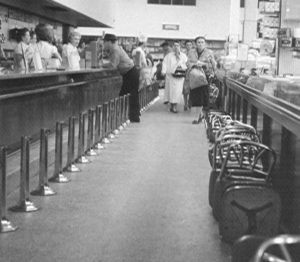 Mar 15: Orangeburg, South Carolina police arrest 389 African-American protesters who had converged on the town’s lunch counters to protest segregation. The Kress 5&10 removes its stools to prevent further sit-ins.
Mar 15: Orangeburg, South Carolina police arrest 389 African-American protesters who had converged on the town’s lunch counters to protest segregation. The Kress 5&10 removes its stools to prevent further sit-ins.
![]() Mar 15: Students from Atlanta’s six historically black colleges start a series of carefully orchestrated sit-ins at ten lunch counters and cafeterias throughout the city. Police arrest 77 of the 200 students, but no violence occurs. Other sit-ins occur in Corpus, Christi, TX, St. Augustine, FL; and Statesville, NC.
Mar 15: Students from Atlanta’s six historically black colleges start a series of carefully orchestrated sit-ins at ten lunch counters and cafeterias throughout the city. Police arrest 77 of the 200 students, but no violence occurs. Other sit-ins occur in Corpus, Christi, TX, St. Augustine, FL; and Statesville, NC.
![]() Mar 19: Sit-ins begin at two drug store lunch counters in Arlington, VA, just a stone’s throw from the nation’s Capitol. Both counters close rather than serve their new customers. The students will return the next day. In just the past four days, sit-ins have taken place in Memphis, TN; New Bern, NC; Savannah, GA; and Wilmington, NC.
Mar 19: Sit-ins begin at two drug store lunch counters in Arlington, VA, just a stone’s throw from the nation’s Capitol. Both counters close rather than serve their new customers. The students will return the next day. In just the past four days, sit-ins have taken place in Memphis, TN; New Bern, NC; Savannah, GA; and Wilmington, NC.
![]()
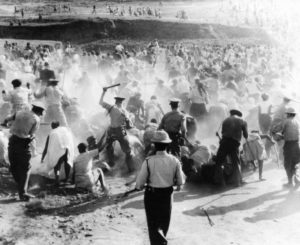 Mar 21: The Sharpeville massacre in South Africa results in more than 69 dead (19 of them children), and 300 injured. The massacre occurs when white police officers fire into a crowd of unarmed black protesters. Most the victims are shot in the back as they try to flee.
Mar 21: The Sharpeville massacre in South Africa results in more than 69 dead (19 of them children), and 300 injured. The massacre occurs when white police officers fire into a crowd of unarmed black protesters. Most the victims are shot in the back as they try to flee.
![]()
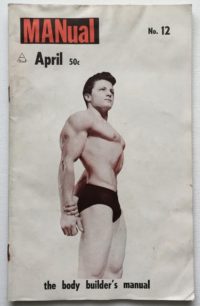 Mar 25: U.S. Postal authorities seize 400 “physique” magazines, declaring them obscene and unmailable. Seized were 255 copies of the MANual, 75 copies of Trim and another 75 copies of Grecian Guild Pictorial. The Post Office contends that the magazines, which feature photos of nearly-nude males, are obscene because they are intended to appeal to homosexuals. The seizure sets up a series of court fights that will result in a landmark 1962 Supreme Court decision declaring photos of nude men are not inherently more obscene than photos of nude women.
Mar 25: U.S. Postal authorities seize 400 “physique” magazines, declaring them obscene and unmailable. Seized were 255 copies of the MANual, 75 copies of Trim and another 75 copies of Grecian Guild Pictorial. The Post Office contends that the magazines, which feature photos of nearly-nude males, are obscene because they are intended to appeal to homosexuals. The seizure sets up a series of court fights that will result in a landmark 1962 Supreme Court decision declaring photos of nude men are not inherently more obscene than photos of nude women.
![]() Mar 26: Students from Wiley College and Bishop College in Marshall, Texas, begin a sit-in at the downtown Woolworth’s lunch counter. On March 30, police will arrest twenty students at three different lunch counters.
Mar 26: Students from Wiley College and Bishop College in Marshall, Texas, begin a sit-in at the downtown Woolworth’s lunch counter. On March 30, police will arrest twenty students at three different lunch counters.
![]() Mar 28: Seven Southern University students sit down at the Kress lunch counter in downtown Baton Rouge. They are immediately arrested, charged with disturbing the peace, and jailed with bail set at $1,500 each (about $12,700 today). The next day, seven more students will be arrested at a Sitman’s lunch counter and at the Greyhound station.
Mar 28: Seven Southern University students sit down at the Kress lunch counter in downtown Baton Rouge. They are immediately arrested, charged with disturbing the peace, and jailed with bail set at $1,500 each (about $12,700 today). The next day, seven more students will be arrested at a Sitman’s lunch counter and at the Greyhound station.
![]() Mar 30: Five thousand African-American students from Southern University walk out of classes and march through Baton Rouge to the state Capitol to protest discrimination and arrests of protesters by police.
Mar 30: Five thousand African-American students from Southern University walk out of classes and march through Baton Rouge to the state Capitol to protest discrimination and arrests of protesters by police.
![]() Mar 30: After police in Marshall, Texas arrested twenty student the day before for staging sit-ins at white-only lunch counters, students from Bishop and Wiley Colleges gather in front of the courthouse and sing protest songs. A crowd of whites gathered and began taunting the students. The city fire department clears the crowd by unleashing fire hoses on the demonstrators. Police arrest 37 more students. With tempers in the are reaching dangerous levels, the sit-ins will end, and talk of a boycott of white-owned businesses fizzle.
Mar 30: After police in Marshall, Texas arrested twenty student the day before for staging sit-ins at white-only lunch counters, students from Bishop and Wiley Colleges gather in front of the courthouse and sing protest songs. A crowd of whites gathered and began taunting the students. The city fire department clears the crowd by unleashing fire hoses on the demonstrators. Police arrest 37 more students. With tempers in the are reaching dangerous levels, the sit-ins will end, and talk of a boycott of white-owned businesses fizzle.
| ◄ | April | ► | ▲ | |||
|---|---|---|---|---|---|---|
| 1 | 2 | |||||
| 3 | 4 | 5 | 6 | 7 | 8 | 9 |
| 10 | 11 | 12 | 13 | 14 | 15 | 16 |
| 17 | 18 | 19 | 20 | 21 | 22 | 23 |
| 24 | 25 | 26 | 27 | 28 | 29 | 30 |
![]() Apr: 7: South Africa formally bans the African Nation Congress and the Pan Africanist Congress.
Apr: 7: South Africa formally bans the African Nation Congress and the Pan Africanist Congress.
![]() Apr 14: The musical Bye Bye Birdie opens at the Martin Beck Theater on Broadway. The Tony Award-winning musical features Dick Van Dyke, Paul Lynde, Michael J. Pollard, Charles Nelson Reilly, and Chita Rivera.
Apr 14: The musical Bye Bye Birdie opens at the Martin Beck Theater on Broadway. The Tony Award-winning musical features Dick Van Dyke, Paul Lynde, Michael J. Pollard, Charles Nelson Reilly, and Chita Rivera.
![]()
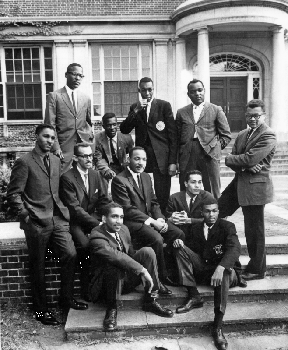 Apr 15: Inspired by the Greensboro and Nashville lunch counter sit-ins, Ella Baker organizes a meeting at Shaw University in Raleigh, North Carolina. That meeting is attended by 300 students from 58 colleges, and results in the establishment of the Student Nonviolent Coordinating Committee (SNCC).
Apr 15: Inspired by the Greensboro and Nashville lunch counter sit-ins, Ella Baker organizes a meeting at Shaw University in Raleigh, North Carolina. That meeting is attended by 300 students from 58 colleges, and results in the establishment of the Student Nonviolent Coordinating Committee (SNCC).
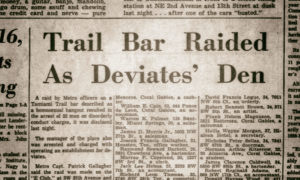 Apr 16: Miami police raid “deviates’ den.” Police hit the “E Club” in East Coral Gables, arresting twenty three men. They are charged with disorderly conduct “by being in a known homosexual hangout.” The Miami News, which had never passed up an opportunity to instigate an anti-gay witch hunt, dutifully printed the names, addresses, ages and occupations of everyone arrested.
Apr 16: Miami police raid “deviates’ den.” Police hit the “E Club” in East Coral Gables, arresting twenty three men. They are charged with disorderly conduct “by being in a known homosexual hangout.” The Miami News, which had never passed up an opportunity to instigate an anti-gay witch hunt, dutifully printed the names, addresses, ages and occupations of everyone arrested.![]() Apr 19: More than 100,000 students march in Seoul, South Korea, to protest fraudulent presidential elections. Police fire into the crowd and kill 140 protesters.
Apr 19: More than 100,000 students march in Seoul, South Korea, to protest fraudulent presidential elections. Police fire into the crowd and kill 140 protesters.
![]()
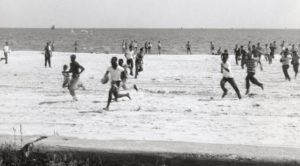 Apr 24: The “Bloody Wade-In” takes place in Biloxi, Mississippi, when 125 black men, women, and children gather on the beach. Biloxi police recruit a mob of whites to confront the African-American bathers. Police stand back as the mob attacks with gunshots and rock-throwing. Two white men and eight black men suffer gunshot wounds. Dr. Gilbert Mason, who attempted an earlier “wade-in” in 1959, is arrested and convicted of disturbing the peace for organizing the wade-in.
Apr 24: The “Bloody Wade-In” takes place in Biloxi, Mississippi, when 125 black men, women, and children gather on the beach. Biloxi police recruit a mob of whites to confront the African-American bathers. Police stand back as the mob attacks with gunshots and rock-throwing. Two white men and eight black men suffer gunshot wounds. Dr. Gilbert Mason, who attempted an earlier “wade-in” in 1959, is arrested and convicted of disturbing the peace for organizing the wade-in.
![]() Apr 26: Responding to a week of massive protests, South Korean President Syngman Rhee resigns after twelve years of dictatorial rule. He and his wife are flown out of the country and begin their exile in Hawaii.
Apr 26: Responding to a week of massive protests, South Korean President Syngman Rhee resigns after twelve years of dictatorial rule. He and his wife are flown out of the country and begin their exile in Hawaii.
![]() Apr 27: The West African nation of Togo becomes independent from France.
Apr 27: The West African nation of Togo becomes independent from France.
| ◄ | May | ► | ▲ | |||
|---|---|---|---|---|---|---|
| 1 | 2 | 3 | 4 | 5 | 6 | 7 |
| 8 | 9 | 10 | 11 | 12 | 13 | 14 |
| 15 | 16 | 17 | 18 | 19 | 20 | 21 |
| 22 | 23 | 24 | 25 | 26 | 27 | 28 |
| 29 | 30 | 31 | ||||
![]()
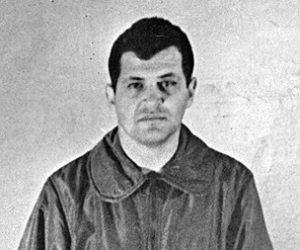 May 1: An American U-2 spy plane piloted by Francis Gary Powers is shot down over the Soviet Union. Powers parachutes to safety but is captured by Soviet authorities.
May 1: An American U-2 spy plane piloted by Francis Gary Powers is shot down over the Soviet Union. Powers parachutes to safety but is captured by Soviet authorities.
![]() May 1: Elvis Presley’s single “Stuck On You” begins its four week run at the top of the charts.
May 1: Elvis Presley’s single “Stuck On You” begins its four week run at the top of the charts.
![]() May 6: Princess Margaret marries Antony Armstrong-Jones in a royal wedding at Westminster Abbey.
May 6: Princess Margaret marries Antony Armstrong-Jones in a royal wedding at Westminster Abbey.
![]() May 7: Soviet Premier Nikita Khrushchev makes a surprise announcement that the Soviets have captured an American U-2 pilot “alive and well” near Sverdlovsk, and the Soviets have recovered Soviet currency and film taken by Powers of Soviet military bases. U.S. authorities express “amazement” at the Soviet’s charge that Francis Gary Powers was flying a spy mission.
May 7: Soviet Premier Nikita Khrushchev makes a surprise announcement that the Soviets have captured an American U-2 pilot “alive and well” near Sverdlovsk, and the Soviets have recovered Soviet currency and film taken by Powers of Soviet military bases. U.S. authorities express “amazement” at the Soviet’s charge that Francis Gary Powers was flying a spy mission.
![]()
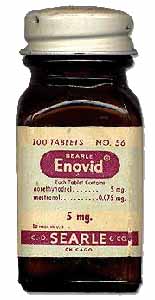 May 9: The Food and Drug Administration gives its approval of the world’s first birth control pill.
May 9: The Food and Drug Administration gives its approval of the world’s first birth control pill.
![]() May 11: Four Israeli Mossad agents abduct fugitive Nazi criminal Adolf Eichmann in Buenos Aires. He will be held captive for ten days before agents are able to fly him to Israel. Eichmann’s capture will be announced on May 23.
May 11: Four Israeli Mossad agents abduct fugitive Nazi criminal Adolf Eichmann in Buenos Aires. He will be held captive for ten days before agents are able to fly him to Israel. Eichmann’s capture will be announced on May 23.
![]() May 29: The Everly Brothers’ single “Cathy’s Clown” begins its five week run at the top of the charts.
May 29: The Everly Brothers’ single “Cathy’s Clown” begins its five week run at the top of the charts.
![]() May 30: Russian writer Boris Pasternak, author of Doctor Zhivago dies at the age of 70.
May 30: Russian writer Boris Pasternak, author of Doctor Zhivago dies at the age of 70.
| ◄ | June | ► | ▲ | |||
|---|---|---|---|---|---|---|
| 1 | 2 | 3 | 4 | |||
| 5 | 6 | 7 | 8 | 9 | 10 | 11 |
| 12 | 13 | 14 | 15 | 16 | 17 | 18 |
| 19 | 20 | 21 | 22 | 23 | 24 | 25 |
| 26 | 27 | 28 | 29 | 30 | ||
![]()
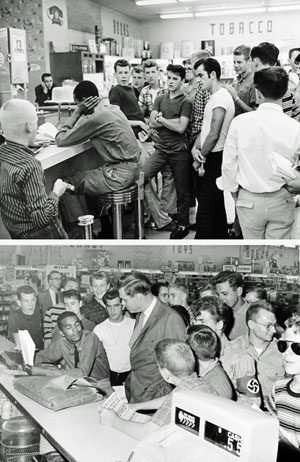 Jun 9: The sit-ins taking place in Arlington, Virginia, since March 19 have been mostly peaceful. But things threaten to get out of hand at the Drug Fair on Lee Highway when a crowd of white teenagers showed up and started harassing the group. American Nazi Party leader George Lincoln Rockwell shows up to confront Dion Diamond. In addition to Rockwell’s racist spew, Diamond had to endure lit cigarettes tossed at him. Diamond later tells the Washington Post, “I’ve heard that term, ‘nigger’, so much in the last few days — more than I’ve ever heard it before. But I kept thinking that if I struck back, I’d be defeating my purpose.” The next day, Diamond and Laurence Henry will be arrested for trespassing at an Arlington Howard Johnson. Within two weeks, the business community will negotiate an end to segregation in Arlington. The rest of Fairfax county will do the same a short time later.
Jun 9: The sit-ins taking place in Arlington, Virginia, since March 19 have been mostly peaceful. But things threaten to get out of hand at the Drug Fair on Lee Highway when a crowd of white teenagers showed up and started harassing the group. American Nazi Party leader George Lincoln Rockwell shows up to confront Dion Diamond. In addition to Rockwell’s racist spew, Diamond had to endure lit cigarettes tossed at him. Diamond later tells the Washington Post, “I’ve heard that term, ‘nigger’, so much in the last few days — more than I’ve ever heard it before. But I kept thinking that if I struck back, I’d be defeating my purpose.” The next day, Diamond and Laurence Henry will be arrested for trespassing at an Arlington Howard Johnson. Within two weeks, the business community will negotiate an end to segregation in Arlington. The rest of Fairfax county will do the same a short time later.
![]() Jun 15: Thousands of Japanese protesters, angry over the ratification of a security treaty with the U.S., storm the parliament building. One female student is killed, and more than 600 are injured. Nationwide, about 5.8 million people participate in protests. President Eisenhower cancels a planned trip to Tokyo, set for June 19, at the request of Prime Minister Nobusuke Kishi.
Jun 15: Thousands of Japanese protesters, angry over the ratification of a security treaty with the U.S., storm the parliament building. One female student is killed, and more than 600 are injured. Nationwide, about 5.8 million people participate in protests. President Eisenhower cancels a planned trip to Tokyo, set for June 19, at the request of Prime Minister Nobusuke Kishi.
![]()
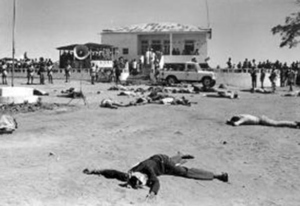 Jun 16: Portuguese troops fire on a crowd of African protesters in Mueda, Portuguese East Africa (later Mozambique), killing more than six hundred people. This shooting will become known as the Mueda Massacre.
Jun 16: Portuguese troops fire on a crowd of African protesters in Mueda, Portuguese East Africa (later Mozambique), killing more than six hundred people. This shooting will become known as the Mueda Massacre.
![]() Jun 16: The Alfred Hitchcock film Psycho, starring Anthony Perkins, is released.
Jun 16: The Alfred Hitchcock film Psycho, starring Anthony Perkins, is released.
![]() Jun 20: The Mali Federation gains independence from France. The Federation was created in 1959 with the merger of the French Sudan and Senegal.
Jun 20: The Mali Federation gains independence from France. The Federation was created in 1959 with the merger of the French Sudan and Senegal.
![]() Jun 23: Japanese Prime Minister Nobusuke Kishi announces his resignation on the day that an unpopular security treaty between Japan and the U.S. goes onto effect.
Jun 23: Japanese Prime Minister Nobusuke Kishi announces his resignation on the day that an unpopular security treaty between Japan and the U.S. goes onto effect.
![]() Jun 26: Two days after the British Somaliland protectorate united with the U.N. Trust Territory of Somalia Italiana, the Somali Republic proclaims its independence.
Jun 26: Two days after the British Somaliland protectorate united with the U.N. Trust Territory of Somalia Italiana, the Somali Republic proclaims its independence.
![]() Jun 30: The Belgian Congo gains its independence from Belgium. At the Independence ceremony, King Boudouin of Belgium gives a speech praising the “genius” of his great-granduncle, the genocidal King Leopold II. Congo’s new prime minister Patrice Lumumba responds with an impromptu and fiery speech denouncing Belgium’s notoriously brutal colonial rule.
Jun 30: The Belgian Congo gains its independence from Belgium. At the Independence ceremony, King Boudouin of Belgium gives a speech praising the “genius” of his great-granduncle, the genocidal King Leopold II. Congo’s new prime minister Patrice Lumumba responds with an impromptu and fiery speech denouncing Belgium’s notoriously brutal colonial rule.
![]() Jun 30: Lionel Bart’s musical, Oliver!, based on the Charles Dickens novel Oliver Twist, premieres in London’s West End.
Jun 30: Lionel Bart’s musical, Oliver!, based on the Charles Dickens novel Oliver Twist, premieres in London’s West End.
| ◄ | July | ► | ▲ | |||
|---|---|---|---|---|---|---|
| 1 | 2 | |||||
| 3 | 4 | 5 | 6 | 7 | 8 | 9 |
| 10 | 11 | 12 | 13 | 14 | 15 | 16 |
| 17 | 18 | 19 | 20 | 21 | 22 | 23 |
| 24 | 25 | 26 | 27 | 28 | 29 | 30 |
| 31 | ||||||
![]() Jul 1: Ghana gains its full independence from Britain. British rule had ended in 1957 when the Crown Colony of the Gold Coast became a self-governing dominion under a mostly-ceremonial British Governor-General.
Jul 1: Ghana gains its full independence from Britain. British rule had ended in 1957 when the Crown Colony of the Gold Coast became a self-governing dominion under a mostly-ceremonial British Governor-General.
![]()
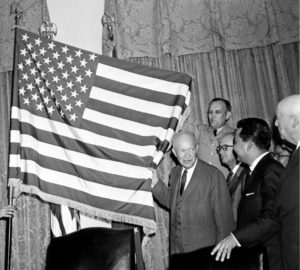 Jul 4: After the admission of Hawaii as the 50th state, a new 50-star American flag is officially flown over Philadelphia’s Independence Hall, Baltimore’s Fort McHenry, and the U.S. Capitol building in Washington.
Jul 4: After the admission of Hawaii as the 50th state, a new 50-star American flag is officially flown over Philadelphia’s Independence Hall, Baltimore’s Fort McHenry, and the U.S. Capitol building in Washington.
![]() Jul 5: Civil war breaks out in Congo when the army mutinies over low pay and the continued presence of an all-Belgian officer corps.
Jul 5: Civil war breaks out in Congo when the army mutinies over low pay and the continued presence of an all-Belgian officer corps.
![]() Jul 10: Belgian troops intervene in the Congo crisis, and further exasperate the conflict.
Jul 10: Belgian troops intervene in the Congo crisis, and further exasperate the conflict.
![]() Jul 11: Harper Lee’s To Kill a Mockingbird is published.
Jul 11: Harper Lee’s To Kill a Mockingbird is published.
![]() Jul 14: American actress and commedian Jane Lynch is born.
Jul 14: American actress and commedian Jane Lynch is born.
![]() Jul 16: The Sino-Soviet split is confirmed when the Soviet Union notifies the People’s Republic of China that all 1,390 Soviet advisers will be withdrawn. Over the next month, the Soviets will cancel twelve economic and technological agreements and 200 joint projects.
Jul 16: The Sino-Soviet split is confirmed when the Soviet Union notifies the People’s Republic of China that all 1,390 Soviet advisers will be withdrawn. Over the next month, the Soviets will cancel twelve economic and technological agreements and 200 joint projects.
![]() Jul 17: Dissatisfied with U.N. and Western foot-dragging in helping to restore peace in the Congo, Congo leaders say they will invite Soviet troops to restore order if Belgian troops refuse to withdraw.
Jul 17: Dissatisfied with U.N. and Western foot-dragging in helping to restore peace in the Congo, Congo leaders say they will invite Soviet troops to restore order if Belgian troops refuse to withdraw.
![]() Jul 25: The Greensboro, North Carolina Woolworths serves its first meal to three black customers (who are actually store employees). Greensboro’s other restaurants will remain segregated until 1963.
Jul 25: The Greensboro, North Carolina Woolworths serves its first meal to three black customers (who are actually store employees). Greensboro’s other restaurants will remain segregated until 1963.
| ◄ | August | ► | ▲ | |||
|---|---|---|---|---|---|---|
| 1 | 2 | 3 | 4 | 5 | 6 | |
| 7 | 8 | 9 | 10 | 11 | 12 | 13 |
| 14 | 15 | 16 | 17 | 18 | 19 | 20 |
| 21 | 22 | 23 | 24 | 25 | 26 | 27 |
| 28 | 29 | 30 | 31 | |||
![]() Aug 1: The Republic of Dahomey, formerly part of French West Africa, becomes independent. It will change its name to Benin in 1975.
Aug 1: The Republic of Dahomey, formerly part of French West Africa, becomes independent. It will change its name to Benin in 1975.
![]() Aug 3: Niger, formerly part of French West Africa, becomes independent.
Aug 3: Niger, formerly part of French West Africa, becomes independent.
![]() Aug 5: Upper Volta, formerly part of French West Africa, becomes independent. It will change its name to Burkina Faso in 1984.
Aug 5: Upper Volta, formerly part of French West Africa, becomes independent. It will change its name to Burkina Faso in 1984.
![]() Aug 6: Cuban leader Fidel Castro nationalizes all American and foreign-owned property in Cuba. This comes in response to a U.S. arms embargo against Cuba, a reduction in the sugar import quota from Cuba and a ban on refined oil exports to the island.
Aug 6: Cuban leader Fidel Castro nationalizes all American and foreign-owned property in Cuba. This comes in response to a U.S. arms embargo against Cuba, a reduction in the sugar import quota from Cuba and a ban on refined oil exports to the island.
![]() Aug 7: Côte d’Ivoire (Ivory Coast), formerly part of French West Africa, becomes independent.
Aug 7: Côte d’Ivoire (Ivory Coast), formerly part of French West Africa, becomes independent.
![]()
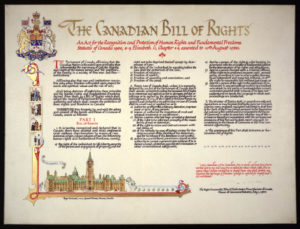 Aug 10: The Canadian Bill of Rights goes into effect.
Aug 10: The Canadian Bill of Rights goes into effect.
![]() Aug 11: Chad, formerly part of French Equatorial Africa, becomes independent.
Aug 11: Chad, formerly part of French Equatorial Africa, becomes independent.
![]()
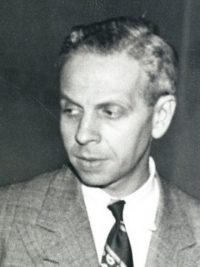 Aug 15: New York Mirror Column Blasts New York Mattachine Society. Gossip columnist Lee Mortimer publishes a small item alerting readers to the presence of a local chapter of the Mattachine Society: “I now ask whether it is in the best of American traditions to encourage the degenerates who roam our streets at night. I say these so-called ‘unfortunates’ are no defenseless minority but a huge, well-organized, wealthy, defiant, politically powerful, intelligent community, spreading across national borders, with loyalty to no country, no law or no code, except their fellow deviates.”
Aug 15: New York Mirror Column Blasts New York Mattachine Society. Gossip columnist Lee Mortimer publishes a small item alerting readers to the presence of a local chapter of the Mattachine Society: “I now ask whether it is in the best of American traditions to encourage the degenerates who roam our streets at night. I say these so-called ‘unfortunates’ are no defenseless minority but a huge, well-organized, wealthy, defiant, politically powerful, intelligent community, spreading across national borders, with loyalty to no country, no law or no code, except their fellow deviates.”
![]() Aug 15: The Republic of the Congo, formerly known as the French Congo, becomes independent. With two neighboring African countries using the same Congo name, the former French colony is often referred to Congo (Brazzaville), to distinguish it from Congo (Léopoldville).
Aug 15: The Republic of the Congo, formerly known as the French Congo, becomes independent. With two neighboring African countries using the same Congo name, the former French colony is often referred to Congo (Brazzaville), to distinguish it from Congo (Léopoldville).
![]() Aug 16: The Island of Cyprus gains its independence from Britain.
Aug 16: The Island of Cyprus gains its independence from Britain.
![]()
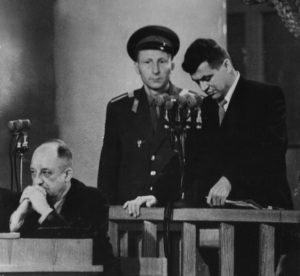 Aug 17: The trial of American U-2 pilot Francis Gary Powers begins in Moscow. Two days later he will be sentenced to ten years in prison for espionage.
Aug 17: The trial of American U-2 pilot Francis Gary Powers begins in Moscow. Two days later he will be sentenced to ten years in prison for espionage.
![]() Aug 17: Gabon, formerly part of French Equatorial Africa, becomes independent.
Aug 17: Gabon, formerly part of French Equatorial Africa, becomes independent.
![]() Aug 20: Senegal secedes from the Mali Federation after only two months of independence from France. The rest of the Mali Federation will retain the name Republic of Mali.
Aug 20: Senegal secedes from the Mali Federation after only two months of independence from France. The rest of the Mali Federation will retain the name Republic of Mali.
![]() Aug 21: Elvis Presley’s single “It’s Now or Never” begins its five week run at the top of the charts.
Aug 21: Elvis Presley’s single “It’s Now or Never” begins its five week run at the top of the charts.
![]() Aug 23: American librettist Oscar Hammerstein II dies at the age of 65.
Aug 23: American librettist Oscar Hammerstein II dies at the age of 65.
![]() Aug 24: The Sabin polio vaccine is approved for use in the United States. Developed by the University of Cincinnati’s Dr. Albert Sabin, the oral vaccine will replace the injections developed by the University of Pittsburgh’s Dr. Jonas Salk. The Salk vaccine had been in use since 1955.
Aug 24: The Sabin polio vaccine is approved for use in the United States. Developed by the University of Cincinnati’s Dr. Albert Sabin, the oral vaccine will replace the injections developed by the University of Pittsburgh’s Dr. Jonas Salk. The Salk vaccine had been in use since 1955.
![]() Aug 25-Sep 11: The 1960 Summer Olympics take place in Rome.
Aug 25-Sep 11: The 1960 Summer Olympics take place in Rome.
![]()
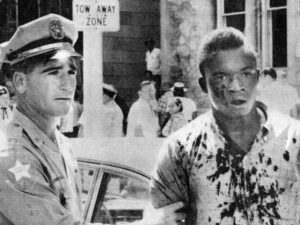 Aug 27: In Jacksonville, Florida, two hundred white men, including Klan members, armed with baseball bats and axe handles, attack black protesters conducting sit-ins at Morrison’s Cafeteria, Woolworths, and other stores around Hemming Park. Fifty people are injured and 62 arrested, 48 of them African-Americans, in what becomes known as “Ax Handle Saturday.” Despite the attacks, sit-ins will continue until the businesses are integrated in 1961.
Aug 27: In Jacksonville, Florida, two hundred white men, including Klan members, armed with baseball bats and axe handles, attack black protesters conducting sit-ins at Morrison’s Cafeteria, Woolworths, and other stores around Hemming Park. Fifty people are injured and 62 arrested, 48 of them African-Americans, in what becomes known as “Ax Handle Saturday.” Despite the attacks, sit-ins will continue until the businesses are integrated in 1961.
![]() Aug 28: The U.N. declares that it has sufficient peace-keeping forces in Congo (Léopoldville), and demands that Belgium withdraws its troops.
Aug 28: The U.N. declares that it has sufficient peace-keeping forces in Congo (Léopoldville), and demands that Belgium withdraws its troops.
| ◄ | September | ► | ▲ | |||
|---|---|---|---|---|---|---|
| 1 | 2 | 3 | ||||
| 4 | 5 | 6 | 7 | 8 | 9 | 10 |
| 11 | 12 | 13 | 14 | 15 | 16 | 17 |
| 18 | 19 | 20 | 21 | 22 | 23 | 24 |
| 25 | 26 | 27 | 28 | 29 | 30 | |
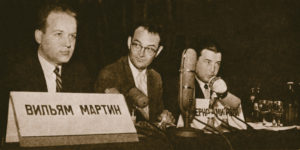 Sep 6: Martin and Mitchell announce their defection to the Soviet Union. The U.S. is still recovering from its embarrassment over the Soviets’ shooting down of an American U-2 spy plane in Soviet airspace four months earlier when the Soviets stage another dramatic press conference in the Kremlin. This time, the Soviets trot out two American National Security Agency employees, Bernon F. Mitchell, 31, of Eureka, California, and William H. Martin, 29, of Ellensburg, Washington, who announce that they have defected to the Soviet Union with the intention of becoming Soviet citizens.
Sep 6: Martin and Mitchell announce their defection to the Soviet Union. The U.S. is still recovering from its embarrassment over the Soviets’ shooting down of an American U-2 spy plane in Soviet airspace four months earlier when the Soviets stage another dramatic press conference in the Kremlin. This time, the Soviets trot out two American National Security Agency employees, Bernon F. Mitchell, 31, of Eureka, California, and William H. Martin, 29, of Ellensburg, Washington, who announce that they have defected to the Soviet Union with the intention of becoming Soviet citizens.![]() Sep 14: Congo (Léopoldville) Prime Minister Patrice Lumumbo is overthrown in a military coup.
Sep 14: Congo (Léopoldville) Prime Minister Patrice Lumumbo is overthrown in a military coup.
![]()
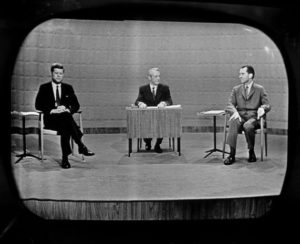 Sep 26: Vice President Richard Nixon and Sen. John F. Kennedy appear in the first televised presidential debate, from Chicago’s WBBM-TV studios. Nixon had been hospitalized due to an infected knee injury, and he looks pale, underweight and sickly. He is also tired because he insisted on campaigning just a few hours before the debate began. To top it off, he refuses to wear makeup, which makes his stubble more noticeable. Kennedy, on the other hand, is well-prepared, rested, tanned, relaxed and confident. Kennedy looks directly into the camera; Nixon looks off to the side toward the reporters.
Sep 26: Vice President Richard Nixon and Sen. John F. Kennedy appear in the first televised presidential debate, from Chicago’s WBBM-TV studios. Nixon had been hospitalized due to an infected knee injury, and he looks pale, underweight and sickly. He is also tired because he insisted on campaigning just a few hours before the debate began. To top it off, he refuses to wear makeup, which makes his stubble more noticeable. Kennedy, on the other hand, is well-prepared, rested, tanned, relaxed and confident. Kennedy looks directly into the camera; Nixon looks off to the side toward the reporters.
![]() Sep 29: My Three Sons premieres on CBS.
Sep 29: My Three Sons premieres on CBS.
![]() Sep 30: The first animated prime time television sitcom, The Flintstones premieres on ABC. While the Flintstones is produced in color, it is broadcast in black-and-white during its first two seasons.
Sep 30: The first animated prime time television sitcom, The Flintstones premieres on ABC. While the Flintstones is produced in color, it is broadcast in black-and-white during its first two seasons.
| ◄ | October | ► | ▲ | |||
|---|---|---|---|---|---|---|
| 1 | ||||||
| 2 | 3 | 4 | 5 | 6 | 7 | 8 |
| 9 | 10 | 11 | 12 | 13 | 14 | 15 |
| 16 | 17 | 18 | 19 | 20 | 21 | 22 |
| 23 | 24 | 25 | 26 | 27 | 28 | 29 |
| 30 | 31 | |||||
![]() Oct 1: Nigeria becomes independent from Britain.
Oct 1: Nigeria becomes independent from Britain.
![]() Oct 3: The Andy Griffith Show premieres on CBS.
Oct 3: The Andy Griffith Show premieres on CBS.
![]() Oct 6: The film Spartacus premieres in New York City.
Oct 6: The film Spartacus premieres in New York City.
![]() Oct 7: The second televised Kennedy-Nixon debate takes place, at WRC-TV in Washington, D.C.
Oct 7: The second televised Kennedy-Nixon debate takes place, at WRC-TV in Washington, D.C.
![]()
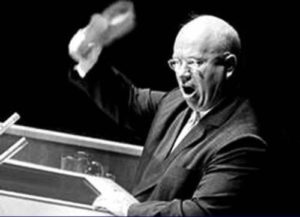 Oct 12: During a meeting of the United Nations General Assembly, Soviet Premier Nikita Khrushchev pounds his shoe on the table in protest over discussions of Soviet policies in Eastern Europe.
Oct 12: During a meeting of the United Nations General Assembly, Soviet Premier Nikita Khrushchev pounds his shoe on the table in protest over discussions of Soviet policies in Eastern Europe.
![]() Oct 13: The third televised Kennedy-Nixon presidential debate takes place, with Kennedy in New York and Nixon in Los Angeles. A split-screen is used to bring the two candidates together. The moderator is in Chicago.
Oct 13: The third televised Kennedy-Nixon presidential debate takes place, with Kennedy in New York and Nixon in Los Angeles. A split-screen is used to bring the two candidates together. The moderator is in Chicago.
![]() Oct 16: In the worst fighting in French Algeria in two years, 277 Algerian fighers and 40 French soldiers are killed.
Oct 16: In the worst fighting in French Algeria in two years, 277 Algerian fighers and 40 French soldiers are killed.
![]() Oct 16: American musician and former Hüsker Dü frontman Bob Mould is born.
Oct 16: American musician and former Hüsker Dü frontman Bob Mould is born.
![]() Oct 19: The U.S. announces an embargo of all exports to Cuba, except for food and medicine.
Oct 19: The U.S. announces an embargo of all exports to Cuba, except for food and medicine.
![]()
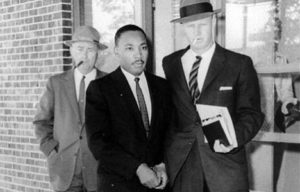 Oct 19: Rev. Martin Luther King is arrested in Atlanta, along with 280 students, during a sit-in at Rich’s department store. King is sentenced to four months at hard labor at Reidsville State Prison for violating terms of parole form an earlier traffic violation. He will be released three days later after Robert F. Kennedy personally appeals to Georgia Gov. Ernest Vandiver.
Oct 19: Rev. Martin Luther King is arrested in Atlanta, along with 280 students, during a sit-in at Rich’s department store. King is sentenced to four months at hard labor at Reidsville State Prison for violating terms of parole form an earlier traffic violation. He will be released three days later after Robert F. Kennedy personally appeals to Georgia Gov. Ernest Vandiver.
![]() Oct 21: The fourth and final Kennedy-Nixon presidential debate takes place at ABC studios in New York.
Oct 21: The fourth and final Kennedy-Nixon presidential debate takes place at ABC studios in New York.
![]() Oct 24: American Tony Award-winning actor B.D. Wong is born.
Oct 24: American Tony Award-winning actor B.D. Wong is born.
| ◄ | November | ► | ▲ | |||
|---|---|---|---|---|---|---|
| 1 | 2 | 3 | 4 | 5 | ||
| 6 | 7 | 8 | 9 | 10 | 11 | 12 |
| 13 | 14 | 15 | 16 | 17 | 18 | 19 |
| 20 | 21 | 22 | 23 | 24 | 25 | 26 |
| 27 | 28 | 29 | 30 | |||
![]() Nov 2: A London court finds Penguin Books not guilty of obscenity for publishing D.H. Lawrence’s novel Lady Chatterly’s Lover.
Nov 2: A London court finds Penguin Books not guilty of obscenity for publishing D.H. Lawrence’s novel Lady Chatterly’s Lover.
![]()
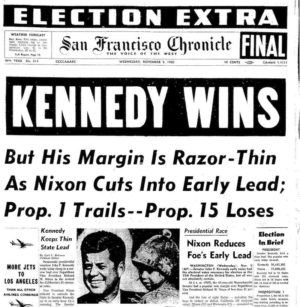 Nov 8: Sen. John F. Kennedy narrowly defeats Vice President Richard Nixon to become President of the United States. Kennedy comfortably wins the Electoral College, 303-219 (15 unpledged electors from Alabama, Mississippi and Oklahoma vote for segregationist Sen. Harry F. Byrd). But the popular vote is the closest in history: 34,220,984 to 34,108,157, a margin of just 0.17%.
Nov 8: Sen. John F. Kennedy narrowly defeats Vice President Richard Nixon to become President of the United States. Kennedy comfortably wins the Electoral College, 303-219 (15 unpledged electors from Alabama, Mississippi and Oklahoma vote for segregationist Sen. Harry F. Byrd). But the popular vote is the closest in history: 34,220,984 to 34,108,157, a margin of just 0.17%.
![]() Nov 13: Sammy Davis Jr., marries Swedish actress May Britt. The fallout over the interracial marriage effectively ends Britt’s film career.
Nov 13: Sammy Davis Jr., marries Swedish actress May Britt. The fallout over the interracial marriage effectively ends Britt’s film career.
![]() Nov 16: Actor Clark Gable dies at the age of 59 of an arterial blood clot ten days after suffering a heart attack.
Nov 16: Actor Clark Gable dies at the age of 59 of an arterial blood clot ten days after suffering a heart attack.
![]() Nov 17: American drag queen, actor, model, singer, songwriter, and television personality RuPaul is born.
Nov 17: American drag queen, actor, model, singer, songwriter, and television personality RuPaul is born.
![]() Nov 28: Mauritania, formerly of French West Africa, becomes independent from France.
Nov 28: Mauritania, formerly of French West Africa, becomes independent from France.
| ◄ | December | ▲ | ||||
|---|---|---|---|---|---|---|
| 1 | 2 | 3 | ||||
| 4 | 5 | 6 | 7 | 8 | 9 | 10 |
| 11 | 12 | 13 | 14 | 15 | 16 | 17 |
| 18 | 19 | 20 | 21 | 22 | 23 | 24 |
| 25 | 26 | 27 | 28 | 29 | 30 | 31 |
![]() Dec 1: Patrice Lumumba, deposed Prime Minister of Congo (Léopoldville), is arrested by the Congolese army.
Dec 1: Patrice Lumumba, deposed Prime Minister of Congo (Léopoldville), is arrested by the Congolese army.
![]() Dec 2: President Dwight D. Eisenhower authorizes $1 million for relief and resettlement of Cuban refugees. They had been arriving in Florida at the rate of about 1,000 per week.
Dec 2: President Dwight D. Eisenhower authorizes $1 million for relief and resettlement of Cuban refugees. They had been arriving in Florida at the rate of about 1,000 per week.
![]() Dec 3: Camelot, starring Richard Burton and Julie Andrews, opens at the Majestic Theatre on Broadway. It is the most expensive stage production to date.
Dec 3: Camelot, starring Richard Burton and Julie Andrews, opens at the Majestic Theatre on Broadway. It is the most expensive stage production to date.
![]() Dec 4: Elvis Presley’s single “Are You Lonesome To-Night” begins its six week run at the top of the charts.
Dec 4: Elvis Presley’s single “Are You Lonesome To-Night” begins its six week run at the top of the charts.
![]() Dec 5: In Boynton v. Virginia, the U.S. Supreme Court declares that segregation in public transportation violates the Interstate Commerce Act. By restricting its holding to interpreting the Interstate Commerce Act, the Court is able to avoid deciding any constitutional questions in the case.
Dec 5: In Boynton v. Virginia, the U.S. Supreme Court declares that segregation in public transportation violates the Interstate Commerce Act. By restricting its holding to interpreting the Interstate Commerce Act, the Court is able to avoid deciding any constitutional questions in the case.
![]() Dec 9: French President Charles de Gaulle’s visit to Algeria is met with European and Muslim rioters throughout Algeria, resulting in 127 deaths.
Dec 9: French President Charles de Gaulle’s visit to Algeria is met with European and Muslim rioters throughout Algeria, resulting in 127 deaths.
![]() Dec 9: The first episode of the soap opera Coronation Street premieres on ITV. The daily half-hour program is still a fixture of ITV programming to this day.
Dec 9: The first episode of the soap opera Coronation Street premieres on ITV. The daily half-hour program is still a fixture of ITV programming to this day.
![]() Dec 10: American Democratic Congressman from California Mark Takano is born.
Dec 10: American Democratic Congressman from California Mark Takano is born.
![]() Dec 12: The U.S. Supreme Court upholds a lower court ruling declaring Louisiana’s racial segregation laws unconstitutional.
Dec 12: The U.S. Supreme Court upholds a lower court ruling declaring Louisiana’s racial segregation laws unconstitutional.
![]()
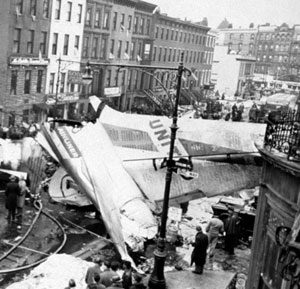 Dec 16: A United Airlines DC-8 collides in mid-air with a TWA Lockheed Constellation over Staten Island in New York City. All 128 passengers and crew members on the two airliners, and eight people on the ground, are killed.
Dec 16: A United Airlines DC-8 collides in mid-air with a TWA Lockheed Constellation over Staten Island in New York City. All 128 passengers and crew members on the two airliners, and eight people on the ground, are killed.
![]() Dec 16: The film Exodus is released.
Dec 16: The film Exodus is released.
![]() Dec 19: American journalist, political commentator and radio host Michelangelo Signorile is born.
Dec 19: American journalist, political commentator and radio host Michelangelo Signorile is born.
![]() Dec 21: The film Swiss Family Robinson is released.
Dec 21: The film Swiss Family Robinson is released.
![[Emphasis Mine]](http://jimburroway.com/wp-content/uploads/2018/02/Leyendecker.jpg)